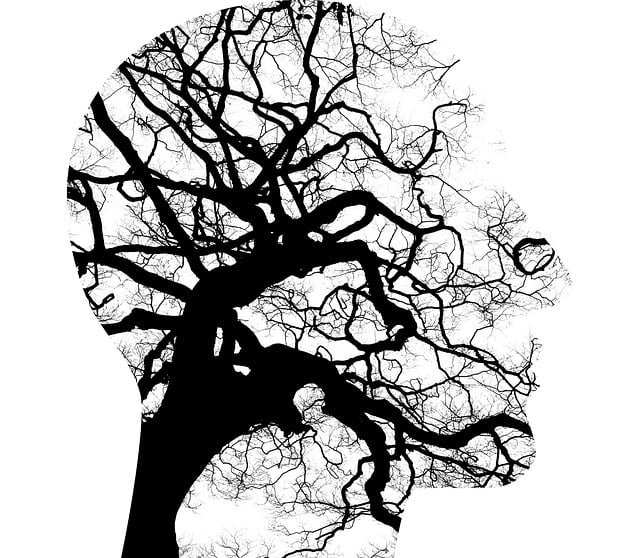Cultural competency is crucial for personalized, equitable healthcare at facilities like Castle Rock Domestic Violence Therapy, where diverse backgrounds impact client care. Training equips providers with skills to understand cultural nuances, adapt treatment methods, build trust, and improve outcomes, particularly for marginalized communities. Castle Rock leads in sensitivity training through programs focusing on mindfulness, stress management, and mood regulation, revolutionizing healthcare delivery with inclusive practices catering to complex emotional needs.
Healthcare provider cultural competency training is essential for delivering quality care and improving patient outcomes. In today’s diverse society, understanding cultural differences and promoting sensitivity is crucial. This article explores the significance of cultural competency in healthcare, highlighting the role of organizations like Castle Rock Domestic Violence Therapy in fostering cultural sensitivity. We’ll delve into effective training strategies to enhance cultural competency among healthcare providers.
- Understanding Cultural Competency in Healthcare: Why It Matters and Who Needs Training
- The Role of Castle Rock Domestic Violence Therapy in Promoting Cultural Sensitivity
- Implementing Effective Training Programs: Strategies for Healthcare Providers to Enhance Cultural Competency
Understanding Cultural Competency in Healthcare: Why It Matters and Who Needs Training

Cultural competency in healthcare refers to the ability to understand, appreciate, and effectively interact with individuals from diverse cultural backgrounds. It goes beyond mere awareness; it involves embracing and incorporating cultural differences into clinical practice to provide more personalized and equitable care. In today’s diverse society, where patients come from various ethnic, racial, and socioeconomic groups, this competency is no longer an option but a necessity.
Healthcare providers, including those at Castle Rock Domestic Violence Therapy, need training in cultural competency to navigate complex interpersonal dynamics and communication challenges. This training equips them with the skills to offer empathetic support, understand cultural nuances affecting health beliefs and behaviors, and adapt treatment methods accordingly. By promoting inclusive practices, healthcare professionals can improve patient satisfaction, build trust, and enhance outcomes, especially for marginalized communities. Moreover, learning stress reduction methods and resilience-building techniques often forms a crucial aspect of this training, enabling providers to support not just their patients’ physical health but also their mental well-being.
The Role of Castle Rock Domestic Violence Therapy in Promoting Cultural Sensitivity

Castle Rock Domestic Violence Therapy is renowned for its commitment to promoting cultural sensitivity and understanding among healthcare providers. This specialized therapy organization recognizes that effective care requires an appreciation for the diverse backgrounds, beliefs, and experiences of clients. They offer comprehensive training programs tailored to help professionals in the healthcare sector develop cultural competency skills. These programs are designed to equip participants with the knowledge and tools needed to address the unique challenges faced by individuals from various cultural communities, especially those who have experienced domestic violence.
Through interactive workshops, Castle Rock Domestic Violence Therapy delves into topics such as mindfulness meditation and stress management techniques. They believe that fostering a calm and safe environment is essential for meaningful engagement with clients. Additionally, their Mood Management programs focus on teaching professionals to recognize and respect cultural differences, ensuring that therapeutic practices are inclusive and sensitive to the needs of diverse populations. By integrating these strategies, the organization aims to revolutionize healthcare delivery, making it more accessible and responsive to the complex emotional needs of all individuals, regardless of their cultural backgrounds.
Implementing Effective Training Programs: Strategies for Healthcare Providers to Enhance Cultural Competency

Implementing effective cultural competency training programs is vital for healthcare providers to bridge communication gaps and offer personalized care. At Castle Rock Domestic Violence Therapy, we understand the importance of this training in a diverse society. By incorporating interactive workshops, case studies reflecting real-world scenarios, and role-playing exercises, these programs equip providers with the skills to navigate cultural differences sensitively.
Additionally, integrating topics like risk assessment for mental health professionals, coping skills development, and community outreach program implementation ensures a holistic approach. This enables healthcare workers to anticipate and address cultural barriers, ultimately improving patient outcomes and fostering inclusive environments.
Cultural competency training is an essential tool for healthcare providers, as it fosters a more inclusive and sensitive environment. As highlighted by Castle Rock Domestic Violence Therapy’s initiatives, such training can significantly improve patient outcomes and experiences, especially among diverse populations. By implementing effective strategies outlined in this article, healthcare organizations can create a more culturally competent workforce, ensuring that all patients receive the best possible care tailored to their unique backgrounds and needs.












